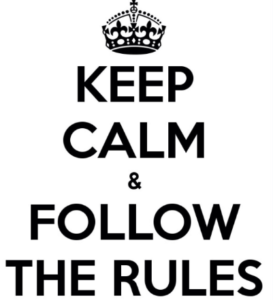Spread the love

What are your favorite top money rules that you (try to) follow?
I referenced blog posts from NerdWallet, The Simple Dollar, and The Practical Saver to create my top money rules.
My 9 top money rules
- Pay yourself first – a lot of the financial gurus, ninjas, influencers preach this. Whether you work a traditional 9-5 like I do or work for yourself through your own business, set aside a percentage of your income and throw it into a retirement account or some index fund. I recently reduced my contribution to my retirement account from 12% to 4% to take advantage of the company 401k employer match in order to pay off my $34K student loan debt quicker.
- Keep a budget so you spend less than you earn – if you have any kind of debt (credit card, mortgage, student loan), I think it is even more important to keep a budget. Keeping a budget helps you stay organized with your finances, eliminate debt, and helps you save more. I personally hate having to connect my accounts to any budgeting app such as Mint. I like the free budgeting mobile app Every Dollar because I simply add my expenses without having to be exact. Rather than keeping track of every single cent, I like to add a bit of a cushion so that it feels like I am spending more than I am. For example, my monthly mobile phone bill is $230 every month (I pay for my family’s mobile plan), I simply input $245. It is purely a mental game for me.
- Prioritize paying off debt – take advantage of any company 401k employer match contributions, but outside of that exception, focus on paying off your debt quickly with the exception of your mortgage. I love the expression that the guys over at Listen Money Matters have said on their podcast which basically says, getting to financial freedom with debt is like driving with your foot on the brake.
- Keep your investment strategy simple – if you have debt (credit card, student loan) and your company does not offer any company match 401k employer contributions, then you should not be making any investments. All of your money should be going towards that debt. I personally need to do a better job of doing this. Once you have paid off your debt, then you can start thinking about your investment strategy. In addition to contributing to your retirement account, you might want to consider investing in individuals stocks. It took me years of research to finally get comfortable picking individual stocks and get started. My recommendation is to keep it simple and go with low cost ETFs, which are basically index funds consisting of different individual stocks. Now if you do not know which ETFs to invest in, then a robo advisor will automatically diversify your investments usually in ETFs.
- If you must buy a car, buy used and pay it off quickly – please do not be like me and lease a new car right out of college and then continue leasing new cars. Buying a used car and then paying it off quickly mathematically makes more financial sense in the long term. I totally get the new car smell syndrome, but the consistent car payment and how it affects my financial future is something that only recently hit me this year. As soon as my current car lease is up in a couple years, I am hoping to pay it off in one shot.
- Take advantage of credit card rewards programs and pay off the entire balance in full every time – owning a credit card, using it, and then paying the entire balance every time is one of the easiest and best ways to improve your credit score. Your credit score is a key factor to get low interest rates whether it is your auto loan or mortgage. I know from first hand experience how my car lease interest rate skyrocketed to 12% from having a rotten credit score. Take advantage of credit cards that offer at least 1.5-2% cash back with no annual fees.
- While keeping track of your budget, always be mindful of materialistic purchase urges – I am guilty of this. I like my fair share of high end fashion designer clothes and shoes. I see these purchases as long term investments meaning 1 pair of Men’s Ferragamo shoes will last me a lifetime compared to buying a $100 pair every several years. However, I have been looking at my budget and clearly see that I have enough clothes and shoes so that the money spent on materialistic items should be reallocated towards my massive student loan debt.
- Start now, take action – whatever it is on the top money rules I have listed, please start now and take action. This is exactly what I did starting just a few months ago when I became extra motivated to pay off my student loan debt. It is never too late no matter what stage in your life or how much you make. There is always something you can do to improve even if it is just baby steps. For example, you might hear financial bloggers talking about saving 5% or 10% every paycheck. That can be daunting at first so just start at 1% or even 0.5%. Just start.
- Stay positive, be patient – as long as you keep to these money rules and you start taking action, know that this takes patience. Stay positive. During your financial journey you will have a strong support system whether it is through the financial blogging community or through your family. However, you will also come across the pessimists in all forms. Keep reminding yourself that this is for you and your family. Continue to be patient and stay positive.
